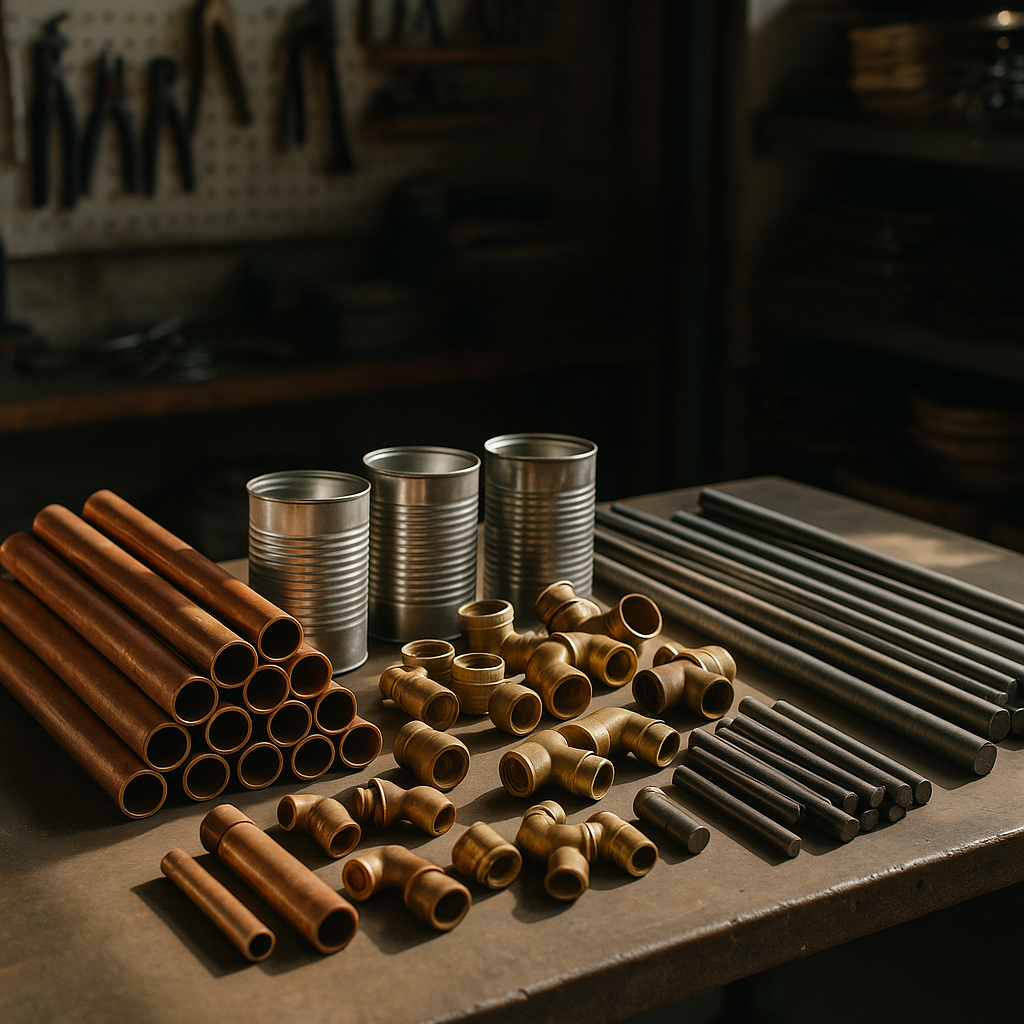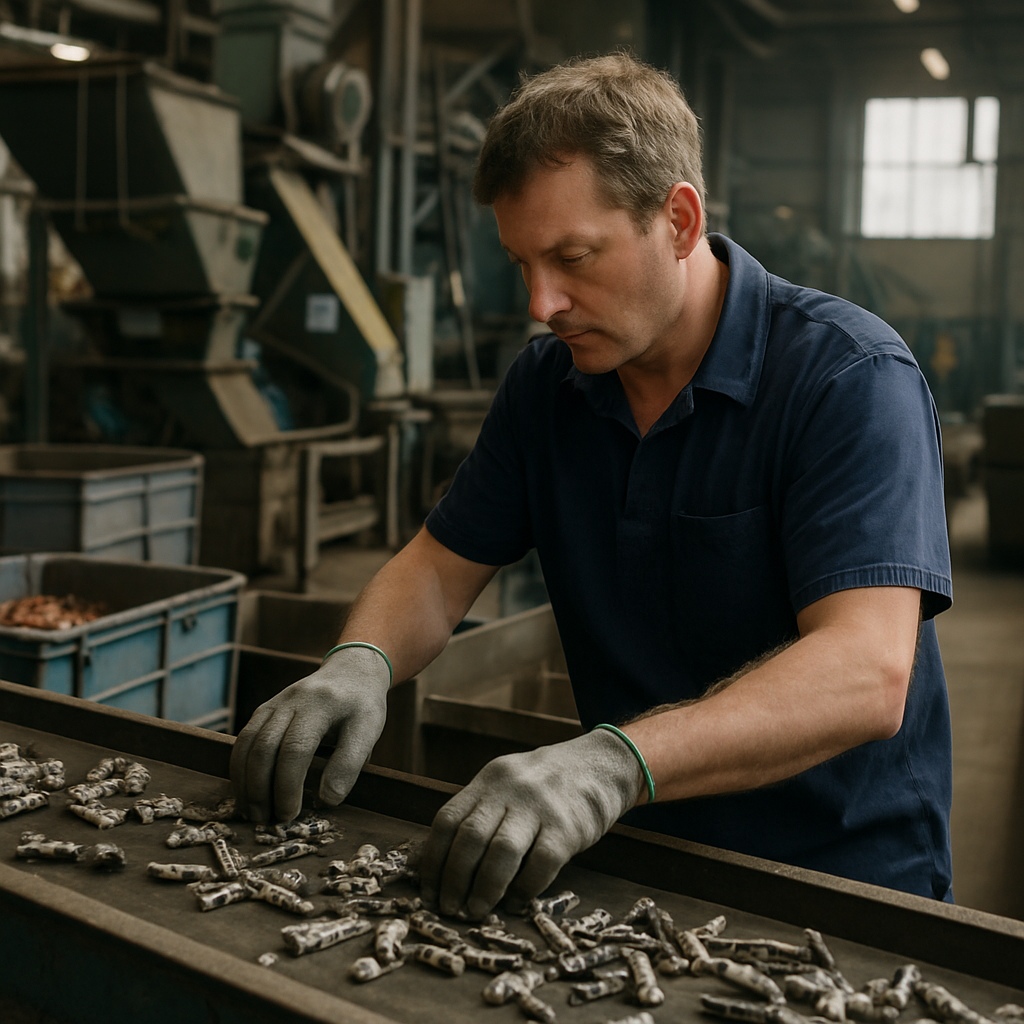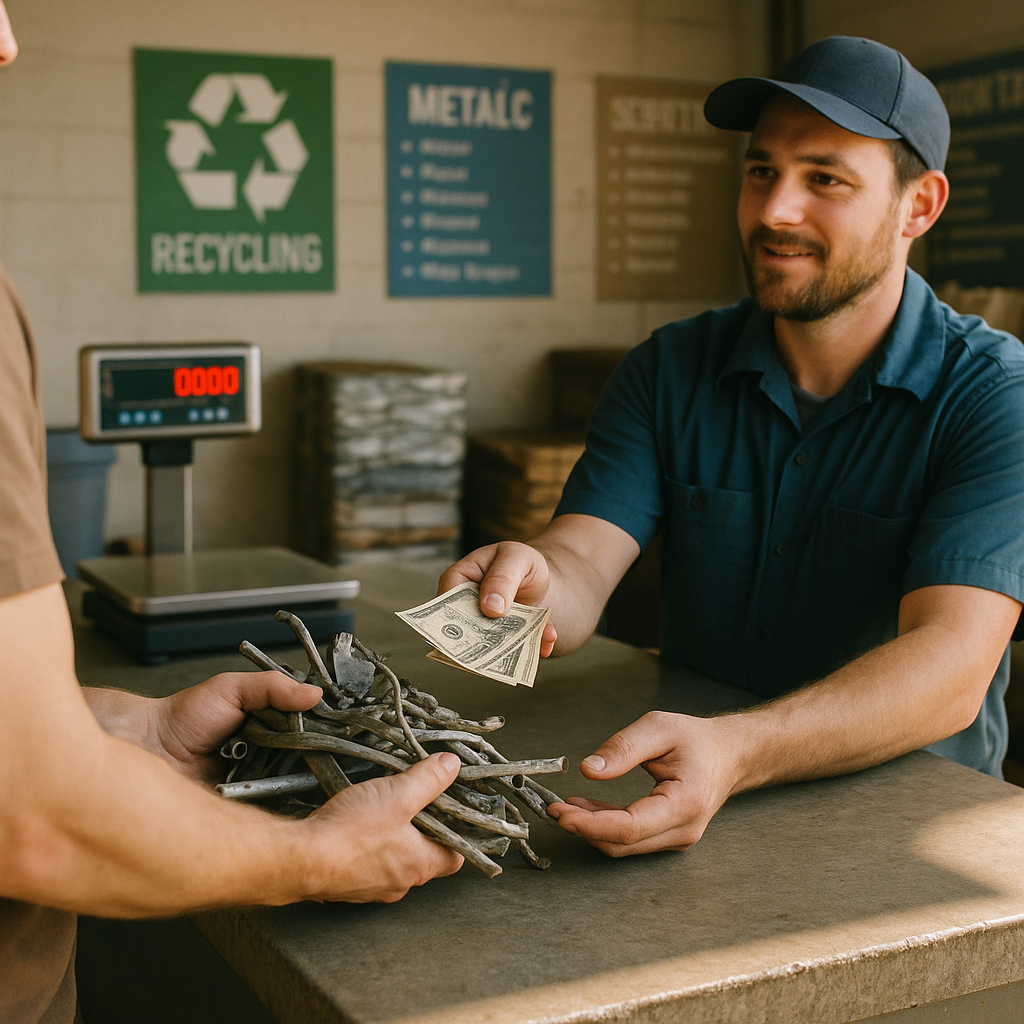5901 Botham Jean Blvd, Dallas, TX 75215
Who Buys Scrap Metal? A Quick Introduction to the Industry
October 31, 2025The scrap metal recycling industry is a significant economic force, generating over $6.1 billion in the UK in 2022. This thriving sector creates value from materials often considered waste, with numerous buyers interested in purchasing metals that might otherwise end up in landfills. From small family-owned operations to international corporations, the industry operates in a pyramid structure where smaller independent firms collect metal and pass it to major reprocessing plants.
But who exactly buys scrap metal? The market includes dedicated recycling companies, scrap yards, metal processing facilities, and manufacturing businesses.
These buyers source materials from individuals clearing out garages, private businesses with excess metal waste, industrial operations, construction sites, and local government entities. Companies run specialized facilities equipped with sorting technologies, furnaces, and processing equipment to transform discarded metal into valuable resources.
What Types of Metals Do Scrap Buyers Purchase?

Scrap metal buyers purchase a wide range of metals, from everyday household items to industrial materials. The market for these materials remains strong as recycling is vital to sustainable waste management. Knowing what types of metals are commonly bought can help you get the most value from your scrap.
Ferrous Metals
Ferrous metals contain iron as their main component and are the most frequently recycled metals by weight. These materials are magnetic and often utilized in structural applications because of their strength and durability.
- Light Iron – Thin-gauge metal found in appliances, bicycle frames, and air conditioning units
- Heavy Iron – Thicker materials (over 1/4 inch) often requiring torch cutting
- Cast Iron – Found in old cookware, pipes, sinks, and fireplace components
- Steel – Available in various forms, including sheet metal and unprepared steel
Non-Ferrous Metals
Non-ferrous metals do not contain iron as their main element and typically command higher prices than ferrous metals because of their valuable properties and more complex refining processes.
- Copper – Highly sought after in forms like bare bright wire, #1 copper pipe, #2 copper pipe, and insulated wire
- Aluminum – Common in cans, siding, sheet metal, cast parts, and vehicle rims
- Brass – Found in plumbing fixtures, cartridges, and decorative items
- Stainless Steel – Both magnetic and non-magnetic varieties from kitchen appliances and medical equipment
- Lead – From wheel weights, old pipes, and batteries
Specialty Items
Beyond basic metal types, scrap buyers often purchase specialty items that contain valuable metals or require specific processing.
- Catalytic Converters – Contain platinum, palladium, and rhodium
- Electric Motors – Valued for their copper windings
- Circuit Boards – Contain small amounts of precious metals including gold
- Transformers – Copper-wound components from power equipment
- Sealed Units/Compressors – From refrigeration equipment
Larger items like junk cars and appliances are also commonly accepted by scrap yards. These items require special processing to remove hazardous materials like oils, refrigerants, and batteries before the metal components can be recycled.
The value of scrap metals varies significantly based on purity, condition, and market demand. Copper and brass generally fetch the highest prices per pound, while ferrous metals like steel and iron have lower rates but often compensate with volume. For specialized items like catalytic converters, prices depend on the specific model due to varying amounts of precious metals content.
When collecting scrap, focus on separating higher-value metals like copper, brass, and aluminum from lower-value ferrous materials to maximize your returns. Clean, sorted metals will always command better prices than mixed or contaminated materials.
How Do Scrap Metal Recycling Services Work?

Scrap metal recycling services are designed to make recycling metals convenient and accessible. These services typically fall into three main categories: on-site pickup, container services, and walk-in options. Each service caters to different needs, volumes, and situations.
On-Site Pickup Services
On-site pickup is ideal for businesses and homeowners with substantial amounts of scrap metal. Companies send specialized vehicles to your location to collect the materials directly.
When scheduling a pickup, most recyclers provide a specific time window and often call ahead to confirm their arrival. This service eliminates the need for you to transport heavy or bulky metal items yourself.
For commercial clients, many recyclers offer regular scheduled pickups, creating a systematic approach to waste management and preventing scrap metal from accumulating in workspaces.
Container Services for Large Projects
Container services are perfect for construction sites, renovation projects, or manufacturing facilities generating significant amounts of scrap metal. Recyclers provide containers of various sizes that remain on-site until filled.
Once the container reaches capacity, the recycling company retrieves it and replaces it with an empty one, ensuring continuous disposal capability without interrupting operations.
Containers range from small bins suitable for sorting different metal types to large roll-off containers that can hold several tons of material. Companies typically offer flexible rental terms to accommodate project timelines.
Walk-In Options for Smaller Quantities
Walk-in services cater to individuals and businesses with smaller amounts of scrap metal. You transport the materials directly to the recycling facility, where they are weighed, sorted, and processed.
Most scrap yards accept a wide variety of metals during walk-in service. They typically use specialized scales to weigh your materials and determine payment based on current market prices.
Walk-in service is often the most economical option for smaller quantities, as it eliminates pickup costs. Many facilities offer extended business hours to accommodate various schedules.
Additional Service Features
Beyond the three main service types, many scrap metal recyclers offer additional features to enhance convenience. Free quotes help estimate the value of your materials before committing to recycling.
Competitive pricing structures ensure fair compensation based on current market rates, with prices adjusted daily to reflect market fluctuations in metal values.
Flexible scheduling options accommodate both individual and commercial clients. Many recyclers operate six or seven days a week and offer after-hours pickups for businesses with specific needs.
Specialization and Equipment
Modern recycling services utilize specialized equipment to handle different types of scrap metal. Grapple trucks with hydraulic claws can lift and load heavy items without manual handling.
For industrial clients, recyclers may bring portable sorting and processing equipment on-site, allowing for immediate processing and more accurate valuation of materials.
Many services now offer digital tracking and reporting tools, assisting businesses in documenting their recycling efforts for sustainability reports or regulatory compliance.
Conclusion: Turning Your Scrap Metal into Cash

Selling scrap metal is a win-win opportunity. You can declutter, earn money, and contribute significantly to the environment simultaneously. By sorting your metals correctly, keeping up with current market rates, and working with reputable buyers, you’ll maximize your profits and environmental impact. Remember, recycling metal reduces landfill waste, conserves natural resources, and uses significantly less energy than producing new materials from raw ore.
Ready to turn unwanted metal into cash while promoting environmental sustainability? The circular economy benefits the more we participate. Whether you have a few aluminum cans or tons of industrial metal waste, contact Okon Recycling at 214-717-4083 for your recycling needs.
